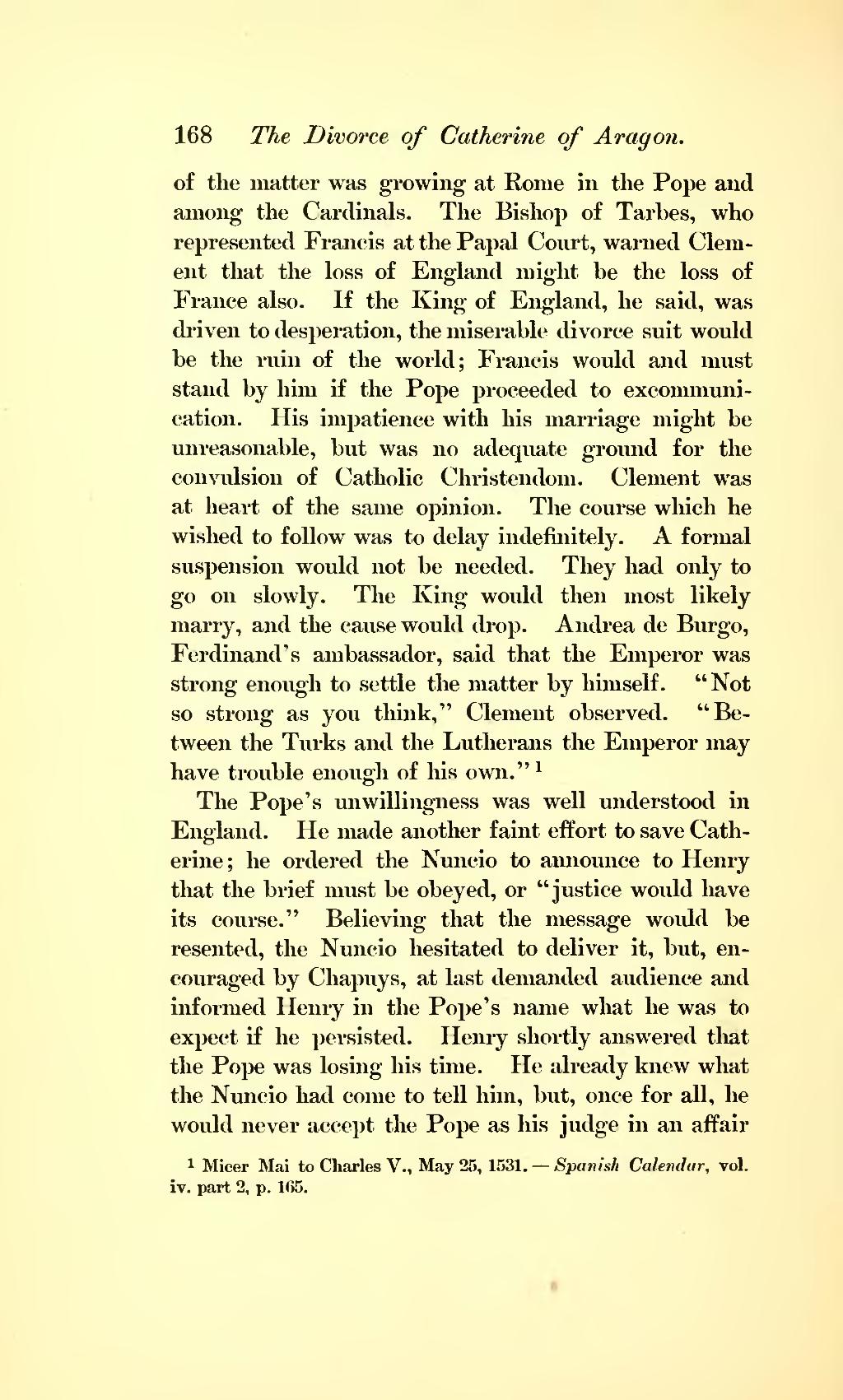of the matter was growing at Rome in the Pope and among the Cardinals. The Bishop of Tarbes, who represented Francis at the Papal Court, warned Clement that the loss of England might be the loss of France also. If the King of England, he said, was driven to desperation, the miserable divorce suit would be the ruin of the world; Francis would and must stand by him if the Pope proceeded to excommunication. His impatience with his marriage might be unreasonable, but was no adequate ground for the convulsion of Catholic Christendom. Clement was at heart of the same opinion. The course which he wished to follow was to delay indefinitely. A formal suspension would not be needed. They had only to go on slowly. The King would then most likely marry, and the cause would drop. Andrea de Burgo, Ferdinand's ambassador, said that the Emperor was strong enough to settle the matter by himself. "Not so strong as you think," Clement observed. "Between the Turks and the Lutherans the Emperor may have trouble enough of his own."[1]
The Pope's unwillingness was well understood in England. He made another faint effort to save Catherine; he ordered the Nuncio to announce to Henry that the brief must be obeyed, or "justice would have its course." Believing that the message would be resented, the Nuncio hesitated to deliver it, but, encouraged by Chapuys, at last demanded audience and informed Henry in the Pope's name what he was to expect if he persisted. Henry shortly answered that the Pope was losing his time. He already knew what the Nuncio had come to tell him, but, once for all, he would never accept the Pope as his judge in an affair
- ↑ Micer Mai to Charles V., May 25, 1531.—Spanish Calendar, vol. iv. part 2, p. 165.
